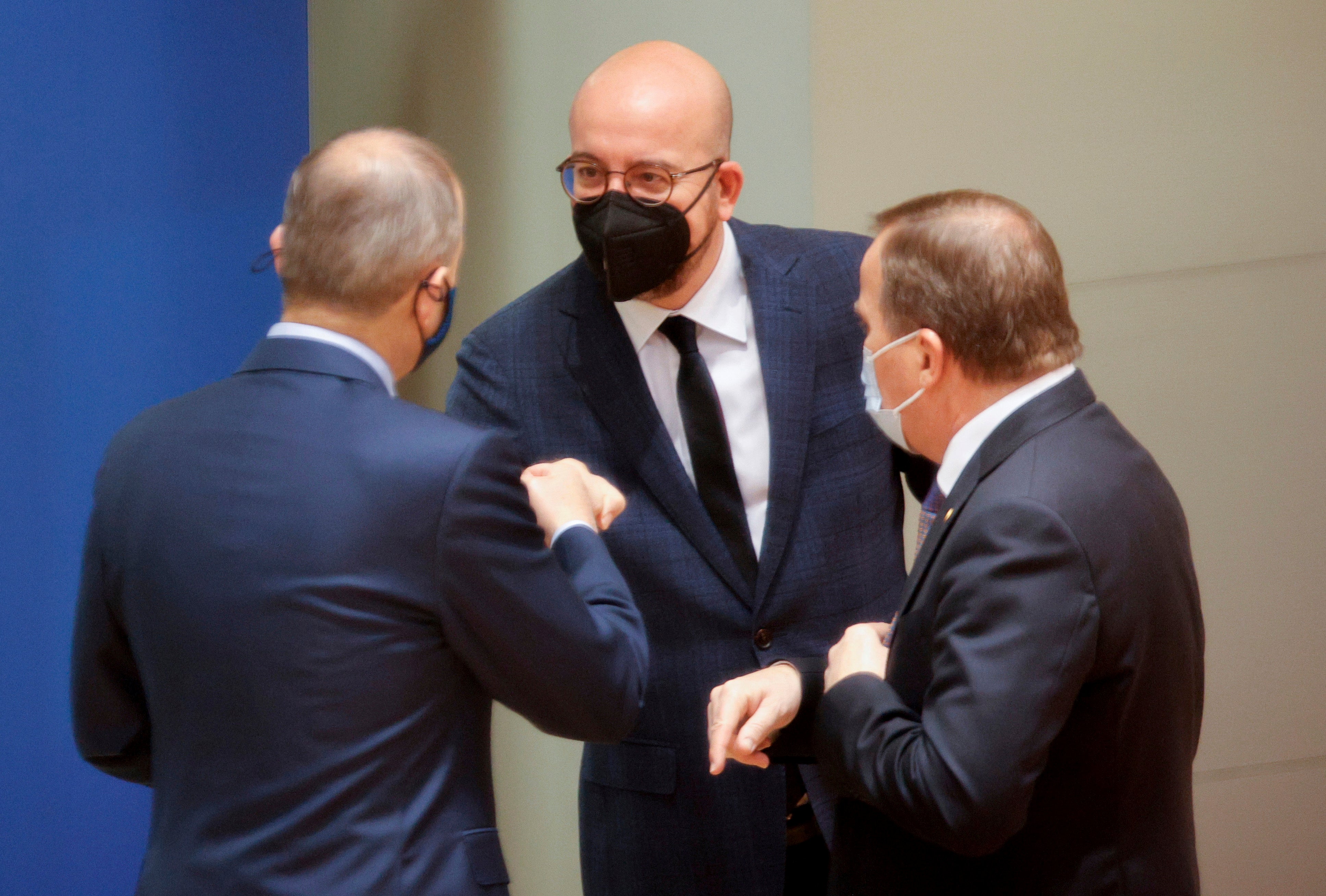EU leaders seek to halt migrant crossings from Belarus
European Union leaders are discussing the sensitive topic of migration to the bloc and how to stop the influx of refugees arriving via neighboring Belarus

Your support helps us to tell the story
From reproductive rights to climate change to Big Tech, The Independent is on the ground when the story is developing. Whether it's investigating the financials of Elon Musk's pro-Trump PAC or producing our latest documentary, 'The A Word', which shines a light on the American women fighting for reproductive rights, we know how important it is to parse out the facts from the messaging.
At such a critical moment in US history, we need reporters on the ground. Your donation allows us to keep sending journalists to speak to both sides of the story.
The Independent is trusted by Americans across the entire political spectrum. And unlike many other quality news outlets, we choose not to lock Americans out of our reporting and analysis with paywalls. We believe quality journalism should be available to everyone, paid for by those who can afford it.
Your support makes all the difference.European Union leaders met Friday to discuss migration to the bloc and how to stop the influx of refugees arriving via neighboring Belarus
EU members Poland and Lithuania have been struggling to cope with an unusually high number of migrants arriving at their borders with Belarus in recent months. The EU is accusing President Alexander Lukashenko’s regime of using them to destabilize the 27-country bloc in retaliation for EU sanctions.
“We have to be decisive. We need decisions. We need actions and we should do this as soon as possible,” said Lithuanian president Gitanas Nauseda ahead of the talks.
Nauseda will be pushing for a review of the bloc’s legislation on migration policy to take into account the situation at the EU’s eastern borders. According to Lithuanian media, he will be seeking EU funding for a physical barrier on the Baltic country's border with Belarus.
Other EU states have been thinking about building fences. Earlier this month, the Polish government approved a bill that would regulate the construction of a high barrier with motion sensors on the border with Belarus to deter people from crossing over.
Thousands of migrants have been lured to Belarus on tourist visas and encouraged to cross into Poland, Lithuania and to a lesser extent Latvia.
Several have died of exhaustion at the Polish-Belarusian border since August, when large numbers of people from Iraq, Iran, Syria and Afghanistan, but also from Africa, started trying to cross, hoping to eventually reach western European nations.
Germany said it has noticed an increase of illegal entries along the German-Polish border since August, registering about 4,500 such entries.
According to a draft of their meeting's conclusions, EU leaders will agree that they won't “accept any attempt by third countries to instrumentalize migrants for political purposes" and condemn “such hybrid attacks at the EU’s borders."
Thousands of migrants have been lured to Belarus on tourist visas and encouraged to cross into Poland, Lithuania and to a lesser extent Latvia. Josep Borrell, the EU's top diplomat, said leaders will also looked at ways to stop airlines carrying migrants to Belarus.
“We have to hold the Belarusian government accountable for these actions, but also to have a look at the airlines and travel operators who are cooperating with this way of using human beings as arms, pushing (them) against the border, creating situations in which there is an extraordinary violation of human rights," he said.
The migration numbers began increasing a year ago after the EU slapped sanctions on Lukashenko’s government over the August 2020 presidential election, which the West views as rigged, and the security crackdown on the Belarusian opposition and peaceful protesters that followed.
Migration has been a sensitive and divisive topic since the arrival in Europe in 2015 of well over 1 million migrants, most of them refugees fleeing conflict in Syria. The exodus sparked one of the EU’s biggest political crises and member states have yet to find an agreement on a system that would guarantee shared responsibility for the new arrivals.
___
Raf Casert in Brussels and Mike Corder in The Hague, Netherlands, contributed to this story.